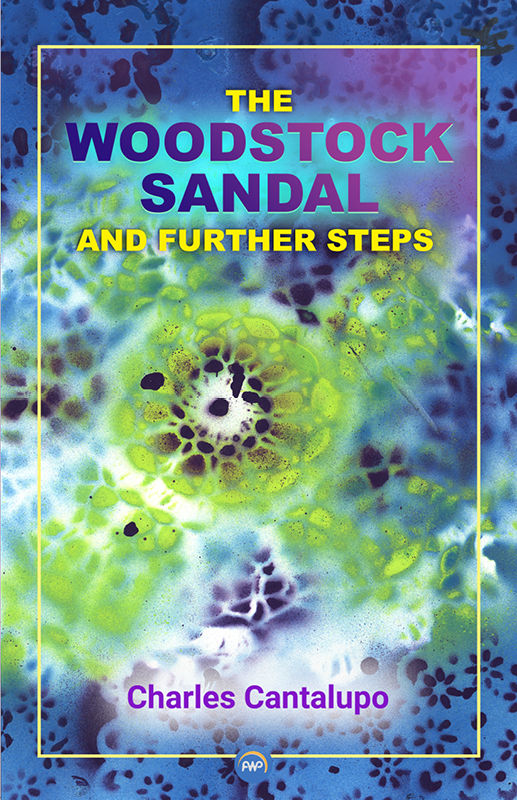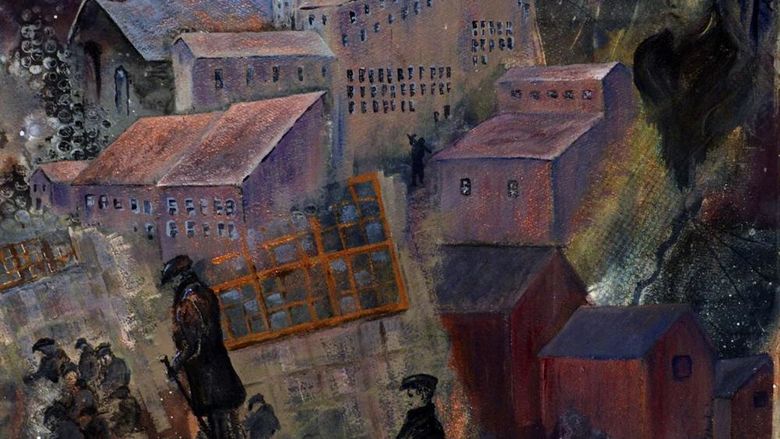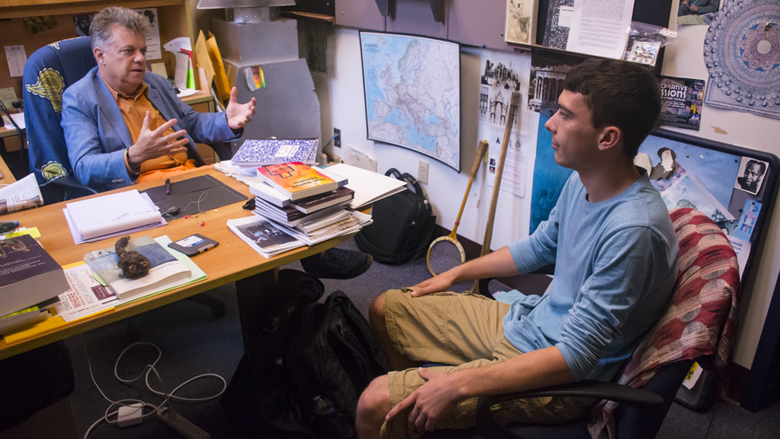
SCHUYLKILL HAVEN, Pa. — The human experience is unique to everyone, and major life events shape that experience over a lifetime. Parenthood, traveling abroad, and navigating life through global sociopolitical strife number among the most impactful human experiences, and Charles Cantalupo, distinguished professor of English, comparative literature, and African studies at Penn State Schuylkill, examines many of these themes and how they have related to his experience in his newest book of poetry, “The Woodstock Sandal and Further Steps.”
The culmination of a youth movement
In August 1969, more than 400,000 people trekked to Bethel, New York, for the three-day Woodstock music festival. At the time, the United States was in the throes of the Vietnam War, the Civil Rights Movement, and other struggles. Many musicians who attended the festival performed pieces reflecting on the tense climate consuming the nation, culminating in a poignant shared experience for all who attended.
For a teenage Cantalupo, Woodstock was nothing short of a coming-of-age experience. “I had never seen such behaviors, such attitudes—such a spectacle,” he recalled.
“It was a culmination of the historical youth movement that quickly ended, and it established a paradigm for me being open to more life-changing experiences,” said Cantalupo, who commented that this event occurred in stark contrast to his suburban New Jersey childhood.
The idea for this newest book derived from an essay Cantalupo was invited to write for a special issue of the scholarly journal, Popular Music and Society, on reminiscences of the Woodstock music festival. He enjoyed writing the piece, and to verify information, even contacted old friends from 50 years before with whom he went to the festival. Completing the essay and submitting it to the editor, Cantalupo said he wanted to do more. He transformed it into a poem and sent it to the editor to be published instead of the essay. Thus, “The Woodstock Sandal” came to fruition.
“As a writer, one is filled with superstitions that you’re only as good as what you wrote yesterday, and you always have the fear that you’re never going to write again,” Cantalupo explained. This new poem motivated him to explore other key moments in his life. "Woodstock was a time that really changed me. Why not try to find other subjects that also changed me? Woodstock was the paradigm — the sandal. But how could one sandal last for a lifetime? I had to find more sandals as time went on, as the poem says."
This one, than that one, then this one – always another
Sandal to wear….
College and grad school, profession, more and different music,
Travel to Europe, and writing, art and literature, sex,
Love, and my first meeting death and going back to religion,
Travel to Africa, love come back and so much more, marriage,
Children, and aging – they all create who I am beyond the
Festivals held in the Woodstock summer, 1969.
— Charles Cantalupo, “The Woodstock Sandal and Further Steps"
Further steps
As he pondered other life events that changed and challenged him, Cantalupo said that this newest book became an intellectual or literary autobiography.
“Each poem is a change of sandal, but they’re all like the Woodstock sandal in that they changed my life,” he explained.
These “further steps” included another life-changing event: a trip to Israel 15 years following his Woodstock adventure. This travel theme became a motif not only in his life, but also in this book. There are poems that recount his time in Egypt, his travels throughout Africa and Europe, and in the United States, from Maine to California.
But travels and experiences are not the only things Cantalupo discusses in this newest work. He also writes about his values, his love of trees, and the sanctuary that is his home garden. He writes about the inimitable Modernist poet, Hilda Doolittle (H.D.), whose grave is in Nisky Hill cemetery, a block away from Cantalupo's house in Bethlehem, Pennsylvania. Writing about Edgar Allan Poe and the places where he lived, including Philadelphia, Cantalupo attributes this interest to his wife, Barbara Cantalupo, professor emerita of English at Penn State Lehigh Valley and editor of “The Edgar Allan Poe Review.”
In the book’s final poem, Cantalupo focuses on Eritrea, where he questions who we are and where we are from. Cantalupo has been traveling to Eritrea for over two decades, inspired by its ancient and diverse culture as well as its longstanding struggle to survive. “Our identities are not as certain as people so often make them out to be,” he said. “Our identities are fluid and various. Culture is not either/or.” In this autobiographical context, Cantalupo identifies with Eritrea, a far-flung place that has come to feel like his second home.
Anchoring the reader and choosing a medium
Most of the poems in “The Woodstock Sandal and Further Steps” include allusions to various times, places, and people in history. Therefore, the book concludes with 46 pages of notes. “It’s unusual for poems to have notes,” Cantalupo commented, “but Woodstock happened more than 50 years ago. Who is Little Richard? Where is Union City or the Filmore East? I wanted to ground readers, be it in American in the 60s, medieval Italy, or the shore of the Red Sea.”
At the time Cantalupo attended Woodstock, he said, he wanted to be a musician himself. Though his career has taken a markedly different turn, he admits that poetry — akin to songwriting — has always been in him.
Cantalupo performed his first public poetry reading when he was in junior high school: a protest song that he wrote about the Vietnam War. First performing his work and seeing the audience respond to his performance became a unique and unforgettable experience that has inspired him ever since. "Once people told me that my work meant something special to them, how could I ever stop?" he said.
This newest book is rooted in decades of Cantalupo’s life experiences, and its poems are meant to appeal to readers from various generations and cultures, he said.
“It seems like a far leap to go from Woodstock to African languages, but as the proverbial expression goes, ‘It’s a small world.’ I hope to appeal to a lot of different readers.”
“The Woodstock Sandal and Further Steps” is now available in the Ciletti Memorial Library at Penn State Schuylkill. Visit Penn State Schuylkill’s website for more information about Cantalupo and his publications.






